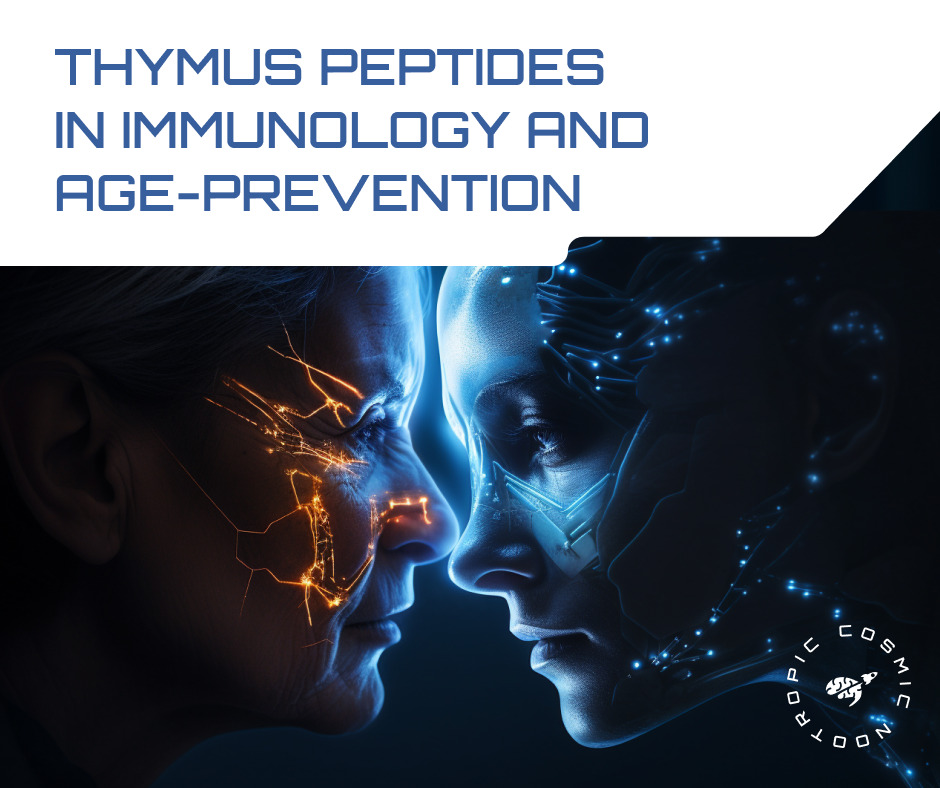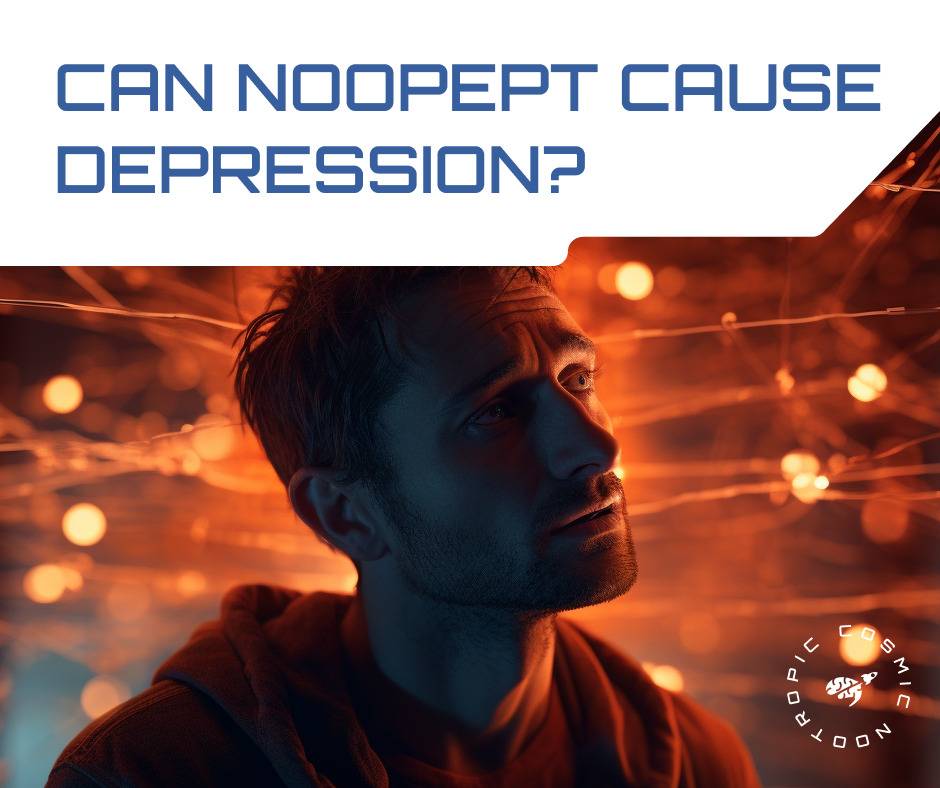Doctor’s review of Afobazole, a new mild anxiolytic
April 17, 2018
We got a new educational video on our channel, which is a doctor’s review of Afobazole! Come check it out! The qualified MD from the previous video will be talking about the Afobazole this time.
Afobazole is a relatively new product that has been increasingly popular in Russia and in the FSU countries. It has little to no side effects and can exert calming and anxiolytic properties if taken as a course. It is prescribed in psychiatry to treat stress, anxiety, depression, and mood swings.
Below you can find the transcript of the video
Stay safe!
Your CosmicNootropic team
Table of contents:
0:05 Effects of Afobazole.
2:03 Effectiveness of Afobazole.
3:51 Afobazole: addiction.
3:55 The effects post intake of Afobazole.
4:41 Afobazole: course of treatment.
5:27 Consequences of prolonged use of Afobazole.
6:49 Side effects of Afobazole.
8:21 Afobazole and sedatives.
Questions in the video:
Can this drug also help in the case of memory gaps?
Afobazole has a cumulative effect, and the indications suggest that the maximum effect of Afobazole is achieved after 4 weeks of use. How fast does this drug take affect?
Can Afobazole develop addiction?
For how long does the effect remain after the intake of Afobazole?
How often is it recommended to repeat the course of Afobazole?
And how long is the break between courses?
Is it possible to take Afobazole continuously (or for a long time)? How will this affect your health?
What side effects can occur in during and after the intake of Afobazole?
Is it safe to combine Afobazole with herbal sedatives like, for example, Glycine or Persen?
Transcript of the video
Irina Lisitsyna: Afobazole is used to treat stress, depression, mood swings, and anxiety. Can it be used in the case of memory gaps and in the case of concentration problems in general? There are such reports.
MD Galushchak: First of all, I would like to explain what kind of drug it is. It is a drug that does not belong to a group of tranquilizers, it is a specific anxiolytic, which means, that it stops anxiety and panic attacks. It is used more and more by doctors recently because there has been positive feedback from patients and doctors. It is used in neurology, in narcology, psychiatry and even in general therapy, when the cardiovascular system is treated. It is even used
in pulmonology in the treatment of bronchial asthma or asthma attacks, when a person anticipates an asthma attack, and this anticipation causes a panic attack, and this panic attack leads to a sensation of suffocation. Cardiogenic pain, this anticipation of an attack of pain in the heart – also provokes anxiety, and anxiety itself intensifies these pains. Therefore, the drug is very interesting and as it treats anxiety and fear, it helps patients to improve their concentration and memory. It doesn’t directly affect memory and attention, as it is not nootropic, and it doesn’t
improve memorization, but, given that anxiety and fear are gone, the body, the memory and the brain focus better on those things. But in the end enhanced memorization is the main result: people notice that when they are taking the drug, panic and anxiety is reduced and as a result their memorization is improved. For us, doctors, this is very useful, because we treat several symptoms at the same time.
IL: But patients who want or are already prescribed this drug should be warned that there is no quick result: it has a cumulative effect. The indications say that the maximum concentration of the substance will be achieved after 4 weeks of use. But people want to have the most effective result at once, therefore, having taken these pills for two or three days, they then simply stop taking it as they consider it ineffective.
MD Galushchak: Yes, there some drugs in medicine, that don’t take effect straight away. We are used to the situation where people want this immediate effect, especially when we are talking about anxious and phobic states that are in general really tormenting, and they can last for months and even years. We say to patients that they need to wait just a little, the drug will begin to act gradually, from the inside, and you will feel that you achieved some kind of balance, your state is not better but it is not worse either, and in the end you’ll feel like it’s gone. You just need a bit of patience.
We prepare our patients for this when we prescribe the drug. Again, the main thing is that this drug is not toxic, and it is indeed a unique drug, because it has very few side effects, so it can be used for a long time, not only for a month and a half, but also we can prescribe it sometimes up to three months so as to treat all the symptoms, that were previously associated with particular attacks where they seem to be decreasing, but the fear remains. This must be treated, but this takes time to make sure the person is convinced that all those situations he was afraid of, will never came back. This is why this drug is in high demand, and it is also one of the most harmless drugs.
IL: So, you can’t become addicted to Afobazole?
MD Galushchak: No, there is no addiction.
IL: And how long does the effect last for after the end of the course of treatment? As we know the effect is cumulative.
MD Galushchak: Well, the effect does not manifest rapidly, and after stopping the intake it will cease in a week or two. Therefore, if the patient takes Afobazole for one and a half to two months, or for two to three months, if necessary, this should be enough time for the doctors to cope with all the main symptoms of the disorder that they are treating: it can be a somatoform disorder, or neurological disorder, sometimes it can even be an anxious state associated with stuttering or associated with dysautonomia (vegetative-vascular dystonia). This is the time when the patient should in general feel the therapeutic effect.
IL: And how many courses of Afobazol a year can be administered and how long should the breaks between these courses should be?
MD Galushchak .: As a rule, it is recommended to administer the medication twice a year. It means, it is prescribed during periods of exacerbation: if we are talking about somatoform disorders, then this is autumn and spring. If this is a panic attack, then the drug should be taken on the eve of some important or troubling events: on the eve of a trip, or some changes, or before an exam. We administer this drug so the patient can calmly face these events. This is a kind of a preventive treatment. As a rule, the course of treatment is administered twice, rarely three times a year.
IL: You said that you can be treated for a maximum of three months.
MD Galushchak: Yes. It is better not to go further, because some people, when they feel the effect, do not want to stop at what has already been achieved and they continue to take it further, fearing that if they stop taking Afobazole, then all anxious states will return.
MD Galushchak: Well, in medicine when we talk about addiction, then what we are talking about?
First of all, we don’t want to form addiction. And when a person takes drugs for more than three months, it’s not a drug addiction that forms, it’s a habit of taking drugs in general, the so-called (pills-mania) extensive use of medication. This means that the patient needs to take something to feel confident, he is addicted to drug intake in general. And we, on the contrary, want to reduce the dosage and lead the patient to the state when he does not need mediaction at all. He should feel healthy without taking pills and medication, so doctors, psychotherapists, and narcologists are trying to avoid this, or at least we administer another replacement drug so that there is no addiction to this particular drug. Or maybe sometimes we administer a drug manufactured in a different form: either it’s herbal tea or herbal medicinal products. We want to change the form of the substance that causes the patients dependency and the psychological craving.
IL: If we talk about the side effects of Afobazole, then there are reports of tremors, dyspnea, heart palpitations. What is the reason for this?
MD Galushchak: In general, this is connected to the dopamine system, to the brain in general, there are people who are sensitive to this, but these symptoms disappear as soon as we reduce the dose.
We also observe the patient individually, first of all, we want to know his subjective sensations and physical manifestations – pulse, blood pressure, heart rhythm. But the main thing is his mental condition, because it is important for us in psychotherapy, in psychiatry. We want the patient to have a feeling of comfort and happiness without taking any psychoactive substances.
Therefore, when patients experience anxiety or fear, we need to treat these conditions, so the patient can be socially adapted and would not be focused on these sensations. Then we replace his dependency on the drug with other methods: this is physiotherapy, this is psychotherapy, breathing techniques, it’s not all about medication. We are now talking about a drug that is widely used, is low-toxicity, but it is still a chemical drug. Imagine this: a dose of 10 milligrams, this is one tablet, and it affects all our 70 or 80 kilograms of weight! That is quite an aggressive substance, so sooner or later patients are prepared for the fact that we will reduce the dosage and we’ll gradually teach them to live without any medication.
IL: Can I take Afobazole with sedative drugs? With Glycine or Persen, for example.
MD Galushchak: Yes, you can. Persen is a plant-based drug, a sedative, Glycine is an amino acid: its action, which strengthens and calms the nervous system, makes you resistant to stress. That is a complex therapy. In complex therapy, the usage of that drug is harmless, it is a drug that also acts for a long time, which means that to have an effect then one must take it for a long time. Many people say “Doctor, I take Glycine and nothing happens!” But this is because it is a drug that works over time, when you take it regularly. You will then feel calmer and more confident; the brain will work better. It can be combined with Afobazole, and it does not interfere its action, on the contrary, the two drugs can be applied in a complex therapy.
//



